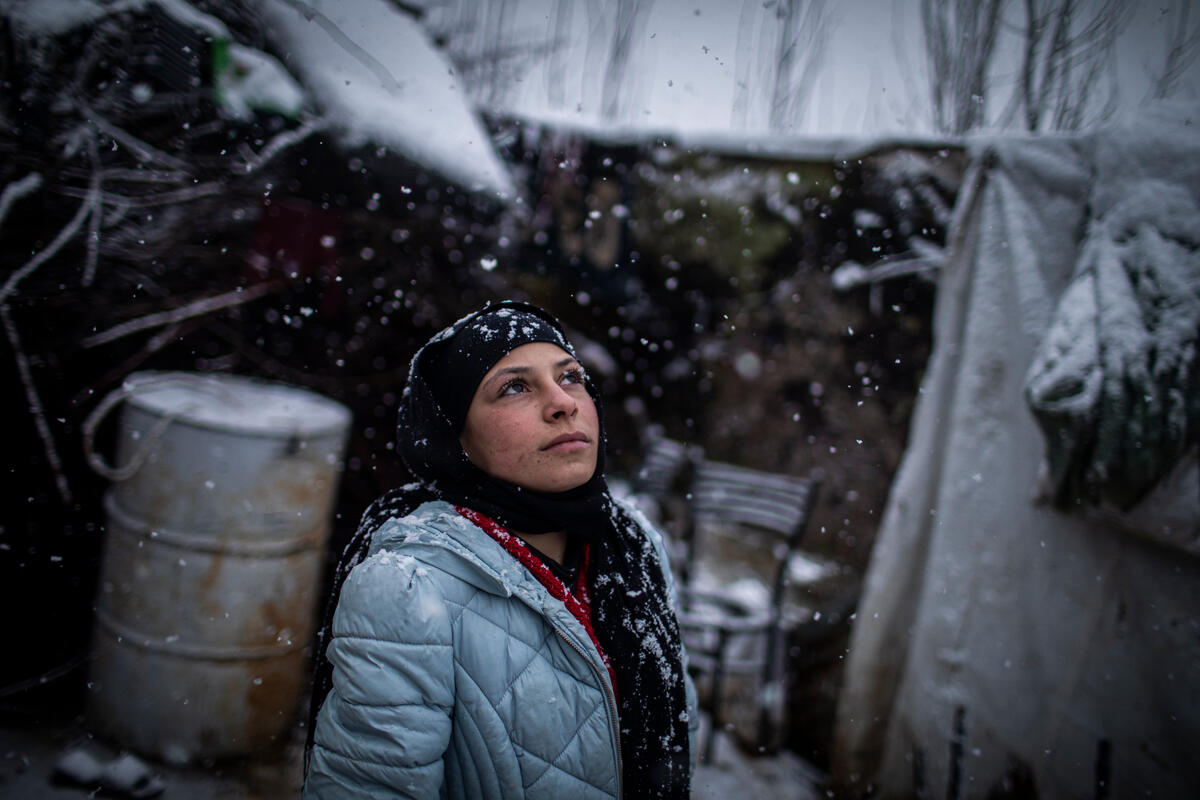Turkey proves a saviour for Syrian pensioner recovering from a stroke
Turkey proves a saviour for Syrian pensioner recovering from a stroke

SURUC, Turkey, February 12 (UNHCR) - After spending his working life in the northern Syrian town of Kobani, Muhammed Ibrahim Shanun thought the hard times were over. "I was finally retired and hoped that my life would now be easier," he told UNHCR recently in the Turkish town of Suruc, some 10 kilometres from the border.
But last year the storm clouds in Syria started spreading towards Kobani and the 70-year-old's life was about to become tougher than ever before. First, the war forced him from his home and deprived him of his possessions, including a house, shop and car; then the stress of all this loss exacerbated a life-threatening medical condition.
"I could not live with the fear [and stress] of leaving everything behind and, as a result, I developed a blood clot in the brain," explained the father of 10 adult children, who subsequently suffered a small stroke that affected his ability to chew or swallow. "This is not the life I had dreamed of having in my old age."
Ibrahim is among tens of thousands of displaced Syrians across the region suffering from illness, including life-threatening conditions like Ibrahim's stroke. UNHCR and its partners struggle to help many in the region who cannot access the urgent treatment they need. Ibrahim considers himself lucky because he was able to get medical care in Turkey before and after fleeing Kobani. "Otherwise I would have died," he said.
When Syrians first started fleeing to Turkey in 2011, the Turkish government gave the new arrivals "temporary protection," which included access to free health care. In response to the influx of people from Kobani, the authorities also set up three warehouse tents to conduct first aid and health checks and deployed 30 ambulances to transport the injured or ill to hospital.
Ibrahim's medical problems began two years before the fighting came to Kobani last September, causing most of the population to seek shelter in Turkey or northern Iraq. Before the siege of Kobani, which ended last month, Ibrahim made several trips to the Turkish cities of Gaziantep and Sanliurfa for free medical treatment under the temporary protection provided by the government.
This has helped huge numbers of people. Between 2011 and mid-November last year, more than 6 million health clinic visits were recorded, some 185,000 operations conducted and more than 380,000 people vaccinated, most of them children receiving shots for measles and polio. UNHCR has been supporting Turkey by providing medical assistance and supplies for refugees in urban areas as well as for host communities, including ambulances, hygiene parcels and mobile clinics.
When militants started attacking Kobani, Ibrahim and members of his family, including his wife and an adult son, joined the estimated 190,000 civilians who fled to Turkey. He found shelter in Suruc, where the influx of Syrians doubled the population of 100,000. The Turkish authorities in late January opened a camp there to host refugees from Kobani, It has a 35,000 capacity, making it Turkey's biggest camp.
Because Ibrahim did not know anybody in Suruc, the Turkish authorities offered him accommodation in a transit centre for refugees. He also needed medical help because his health had deteriorated further due to the extra stress and he needed special feeding arrangements.
The Turk authorities took Ibrahim to Suruc State Hospital, where he was fed through the nose with liquefied food and nutrients because of his problem with swallowing. UNHCR staff have been meeting with Ibrahim, who recently moved into the new camp at Suruc, and looking at the possibility of an operation for his condition.
Ibrahim said he would like to join his other children, who live in Europe and Iraq, "but I cannot risk going now with my precarious health situation." The strain of what he has been through shows on his face. His health problems will need long-term treatment for full recovery.
"I am getting assistance here in Turkey and I am safe," he noted, adding: "I am dependent on this assistance and thankful to the authorities helping us here." His future remains uncertain, but at least he is safe and receiving treatment - unlike many others displaced within Syria as the conflict nears the start of a fifth year.
By Selin Unal in Suruc, Turkey









